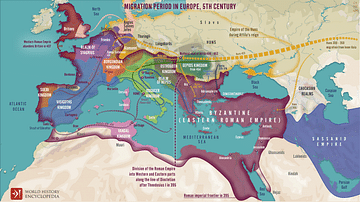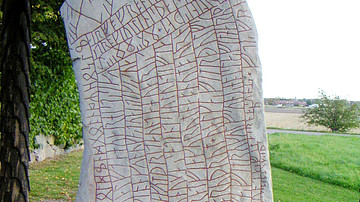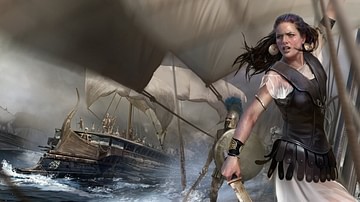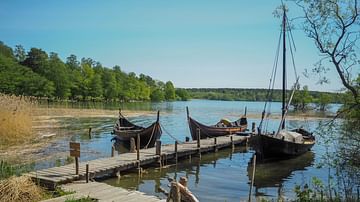Search
Did you mean: Critias?
Summary 
Loading AI-generated summary based on World History Encyclopedia articles ...

Image
Redbad, King of the Frisians
A depiction of King Redbad (c. 680- c. 719) by Pier Winsemius (1586-1644), a Frisian lawyer and historian.

Article
The Batavian Revolt
Batavian revolt was a rebellion of the Batavians against the Romans in 69-70 CE. After initial successes by their commander Julius Civilis, the Batavians were ultimately defeated by the Roman general Quintus Petillius Cerialis. The year...

Definition
The Saxons
The Saxons were a Germanic people of the region north of the Elbe River stretching from Holstein (in modern-day Germany) to the North Sea. The Saxons who migrated to Britain in the 5th and 6th centuries CE along with the Angles, Frisians...

Definition
Saint Boniface
Saint Boniface (born as Wynfreth, l. 672-754) is one of the most famous saints in the Netherlands. He helped Pope Gregory II (r. 715-731), who was keen to convert pagan Germanic tribes, to achieve his goal, the Christianization of Europe...

Definition
Hedeby
Hedeby (Old Norse: Heiðabýr; German: Haithabu) was an important stronghold in Viking Age Denmark from the 8th-11th centuries CE and, along with Birka in present-day Sweden, it was the most important Viking trading center in Europe. During...

Definition
Migration Age
The Migration Period, also called the Barbarian Invasions or German: Völkerwanderung (wandering of the peoples), was a period of human migration that occurred roughly between 300 to 700 CE in Europe, marking the transition from Late Antiquity...

Definition
Runes
Runes are letters in the runic alphabets of Germanic-speaking peoples, written and read most prominently from at least c. 160 CE onwards in Scandinavia in the Elder Futhark script (until c. 700 CE) and the Younger Futhark - which illuminated...

Definition
Pirates in the Ancient Mediterranean
Piracy, defined as the act of attacking and robbing a ship or port by sea, had a long history in the ancient Mediterranean stretching from the time of the Egyptian pharaoh Akhenaten (r. 1353-1336 BCE) and throughout the Middle Ages (c. 476-1500...

Definition
Birka
Birka, located on the island of Björkö in present-day Sweden, was an important trading center and strongly fortified town in the Viking Age which flourished from the 8th through the 10th centuries CE. Along with the town of Hedeby which is...